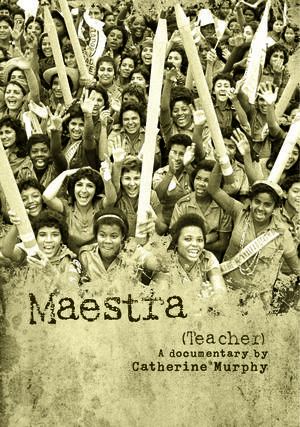Latin America
Related: About this forumPanama relaunches national literacy program
Panama relaunches national literacy program
EFE | Panama City 11 Aug 2014
Panama on Monday relaunched its national literacy program, a project in which it has the cooperation of the Cuban government.
The literacy program was initiated in 2007 and will be participated in by officials of several government institutions, as well as a group of Cuban technicians who are already in Panama, Social Development Minister Alcibiades Vasquez told reporters.
http://www.efe.com/efe/noticias/english/life/panama-relaunches-national-literacy-program/4/2062/2389621
(Short article, no more at link.)
[center]~ ~ ~[/center]
Panama Resumes Literacy Program with Cuban Assistance
Created on Tuesday, 12 August 2014 13:13 |
HAVANA, Cuba, Aug 12 (acn) The Panamanian government has resumed a national literacy program to lower current illiteracy levels estimated at 5.5 percent down to 3.0 percent in five years, an effort that will count on Cuban assistance.
Panamanian Social Development minister Alcibiades Vasquez told reporters in Panama city that the 2007 literacy program was retaken with the participation of Cuban specialists, who are already in the country.
At present there are over 192 thousand illiterate citizens in Panama, particularly in indigenous areas in the provinces of Veraguas and Chiriqui, in central and western Panama, which represents 5.5 percent of the total population, said national literacy director Rufino Huertas.
The Panamanian literacy program known as s "Move Throughout Panama," launched in 2007 as a government-led initiative to fight poverty is similar to the Cuban program "Yes, I Can," which was launched by the Cuban government.
http://www.cubanews.ain.cu/world/1273-panama-resumes-literacy-program-with-cuban-assistance
[center]~ ~ ~[/center]
Freedom Through a Pencil: The 1961 Literacy Campaign in Cuba
by Sujatha Fernandes

The high rate of literacy in Cuba is one of the proud and much touted accomplishments of the Cuban Revolution. Beginning half a century ago, in 1961, the literacy campaign mobilized more than 1 million Cubans as teachers or students. In that same year, 707,000 Cubans learned how to read or write. Maestra tells the story of that inspiring campaign through the memories of the women who served as literacy teachers—the maestras themselves.
The filmmaker, Catherine Murphy, lived in Cuba in the 1990s and earned a master’s degree at the University of Havana. She is the founder and director of a multimedia project known as the Literacy Project, which focuses on gathering oral histories of volunteer teachers from the literacy campaign. For Maestra, the first documentary to arise from the project, she interviewed more than 50 women and 13 men who were involved in the campaign. Many of them are now in their seventies. She also carried out five years of research in the Cuban national film archives.
Documentary footage shows the energy and enthusiasm of the young women who traveled on trains into the small towns and countryside of Cuba to live among the people and teach them how to read and write. But the challenges they faced were extreme. These women often faced opposition from their families, and many left against their parents’ wishes. They lived with poor rural families, sleeping in hammocks at night. During the day they would work in the fields alongside the peasants, and in the few hours they had in the evening, they would prepare lessons and conduct classes.
The hardships and poverty they encountered were not always conducive to learning how to read and write. Literacy teacher Diana Balboa recounts the story of a 47-year-old palm tree cutter: “His hands were swollen and deformed by such a violent job. He was unable to hold a pencil. I helped him hold the pencil but it fell out of his hands.” The man learned to read a bit, but he was never able to write.
In the midst of the literacy campaign, Cuban exiles launched the CIA-supported Bay of Pigs invasion. Although it was discovered and thwarted by the Cuban armed forces, escaped mercenaries combed the countryside, harassing the peasants and their literacy teachers.
In a country where the urban and rural poor had long been denied access to education, literacy was empowerment. For the counter-revolutionaries who wanted to see Cuba return to the status quo, teaching literacy to the poor was an affront to the class order. One teacher recounts the threats to her host family from gunmen who pounded on their door, demanding, “Bring out the literacy teachers!” But this family, like others across the country, put their lives on the line to protect the teachers. Sadly, they were not always able to escape these threats, and one teacher, Manuel Ascunce, was killed by insurgents.
More:
https://nacla.org/article/freedom-through-pencil-1961-literacy-campaign-cuba